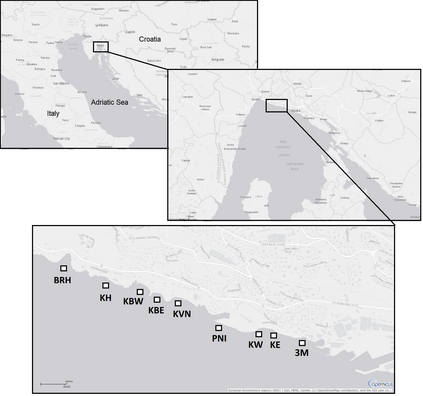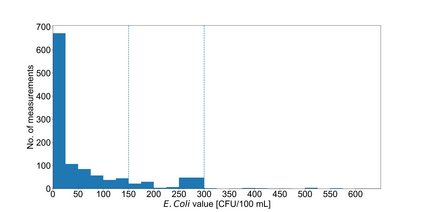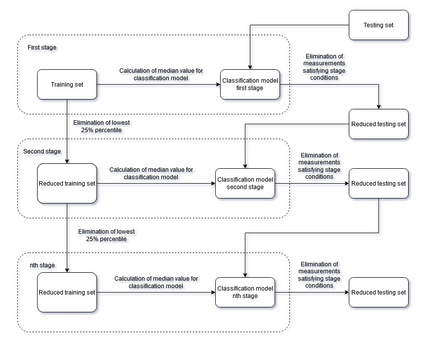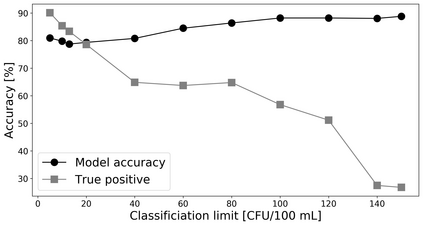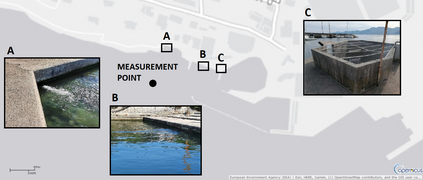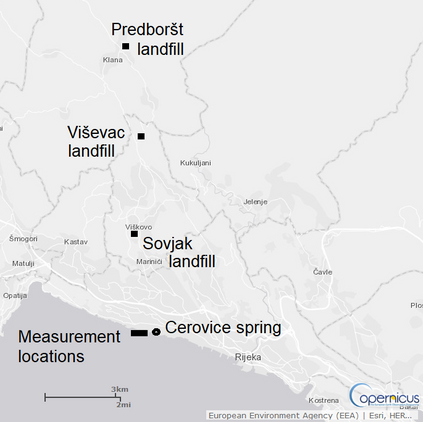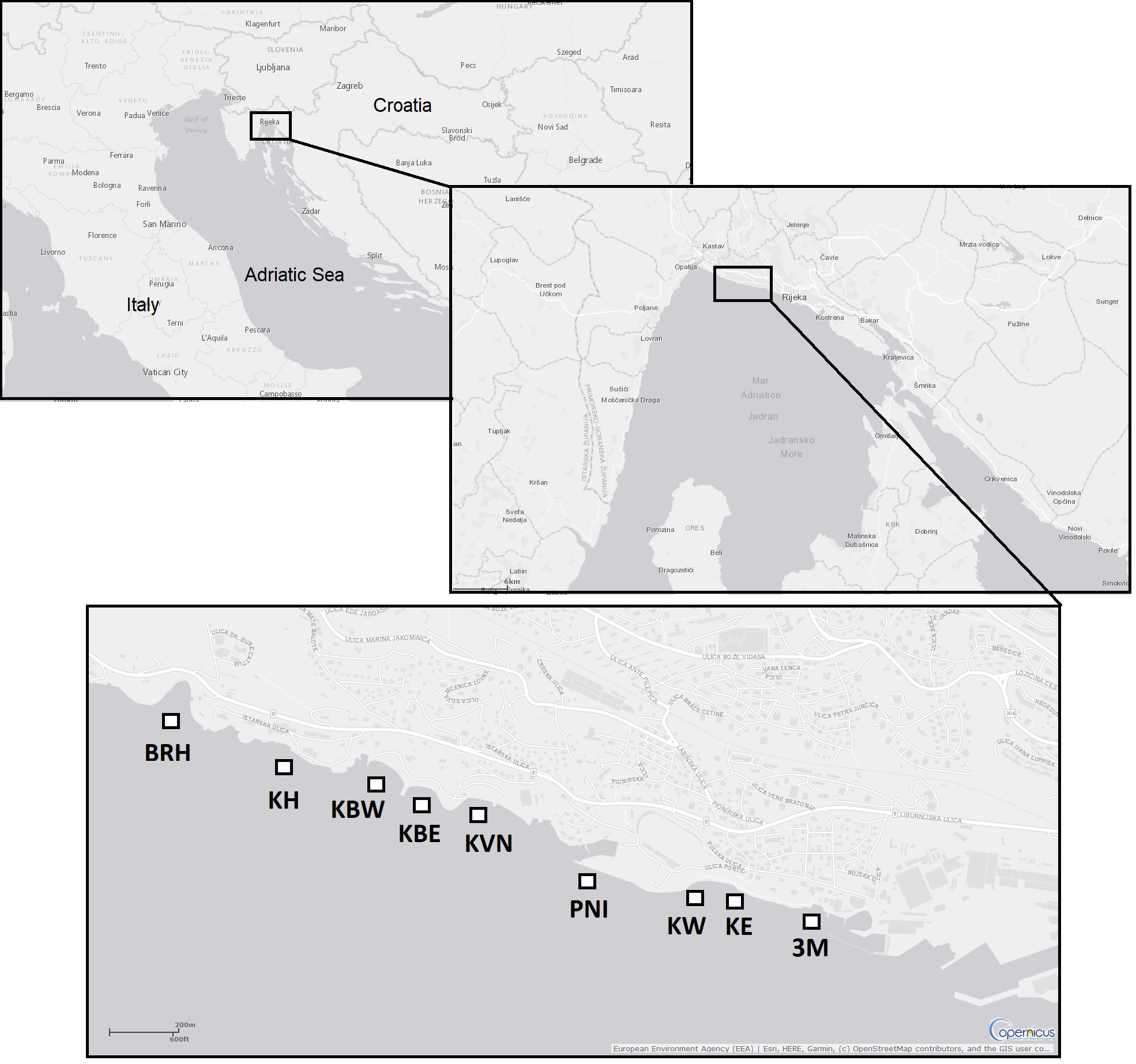In this paper, an in-depth analysis of Escherichia coli seawater measurements during the bathing season in the city of Rijeka, Croatia was conducted. Submerged sources of groundwater were observed at several measurement locations which could be the cause for increased E. coli values. This specificity of karst terrain is usually not considered during the monitoring process, thus a novel measurement methodology is proposed. A cascade machine learning model is used to predict coastal water quality based on meteorological data, which improves the level of accuracy due to data imbalance resulting from rare occurrences of measurements with reduced water quality. Currently, the cascade model is employed as a filter method, where measurements not classified as excellent quality need to be further analyzed. However, with improvements proposed in the paper, the cascade model could be ultimately used as a standalone method.
翻译:本文深入分析了克罗地亚里耶卡市洗澡季节的Esherichia coli海水测量情况,在几个测量地点观察到地下水的稀释源,这可能是增加E. coli值的原因。在监测过程中,通常不考虑卡斯特地形的这种特殊性,因此提出了一种新的测量方法。根据气象数据,使用级联机器学习模型预测沿海水质,由于测量水质下降的罕见现象造成数据不平衡,从而提高了准确性。目前,级联模型被用作过滤方法,需要进一步分析未归类为高质量测量方法,但是,随着文件中提议的改进,级联模型最终可以作为一种独立的方法使用。

